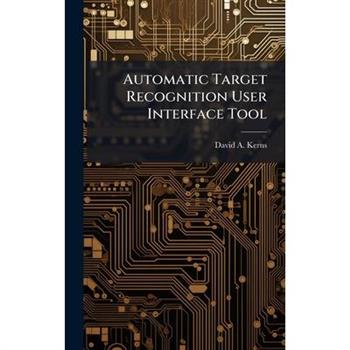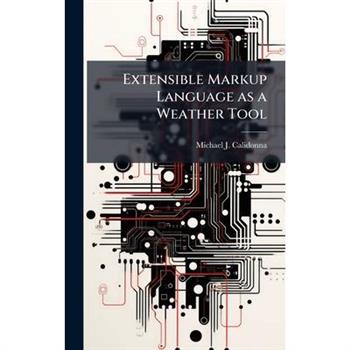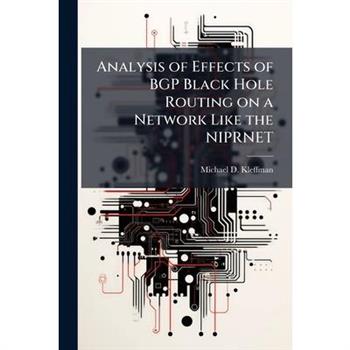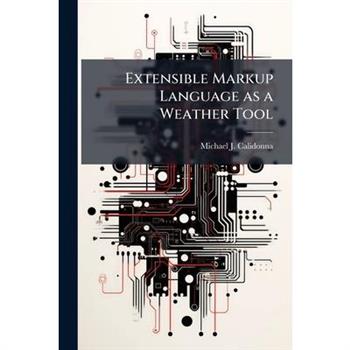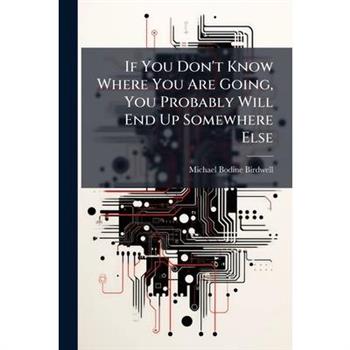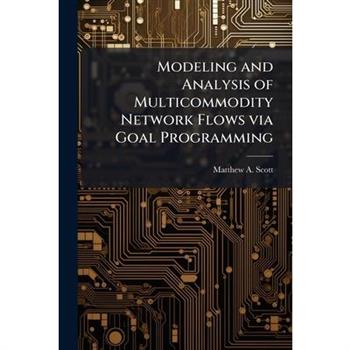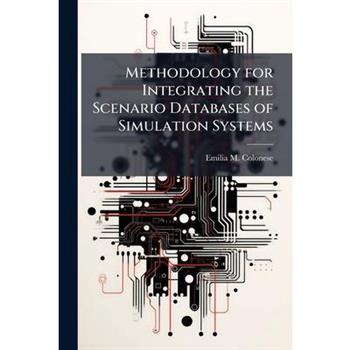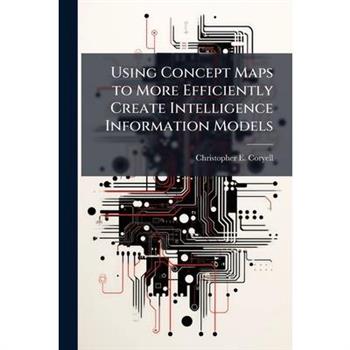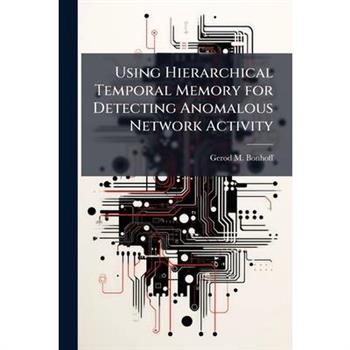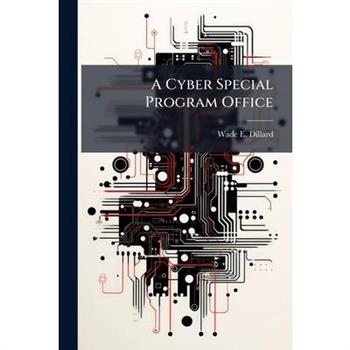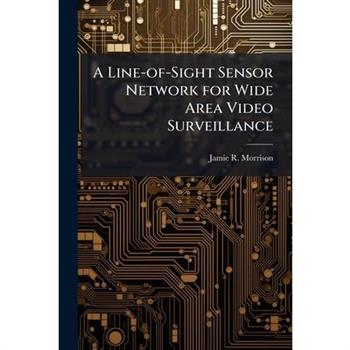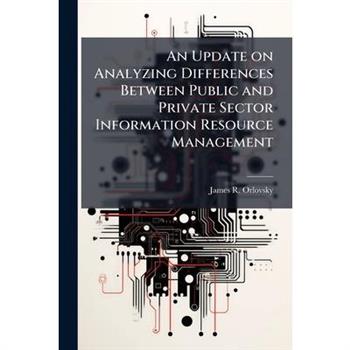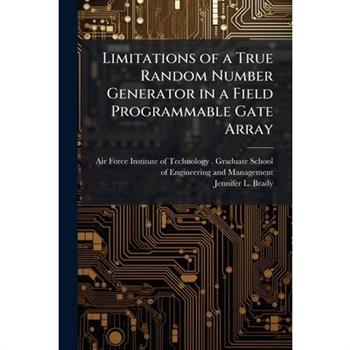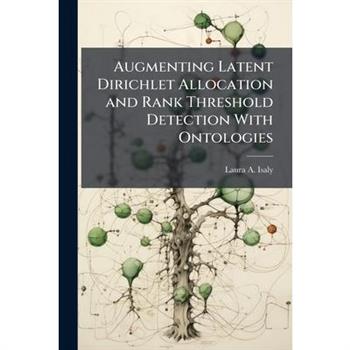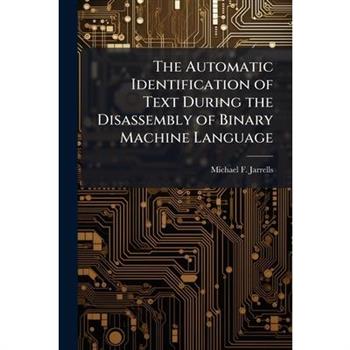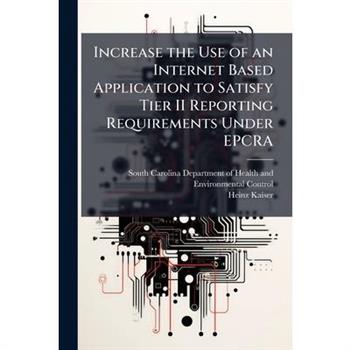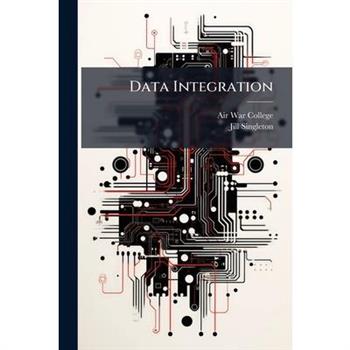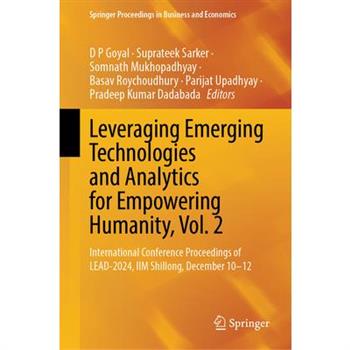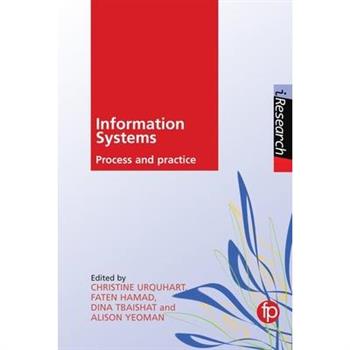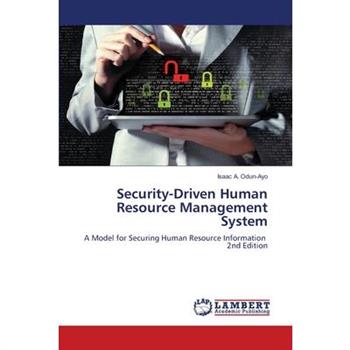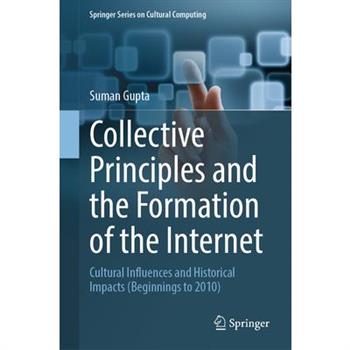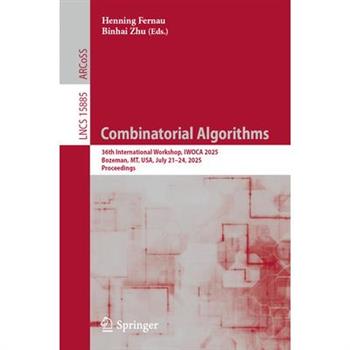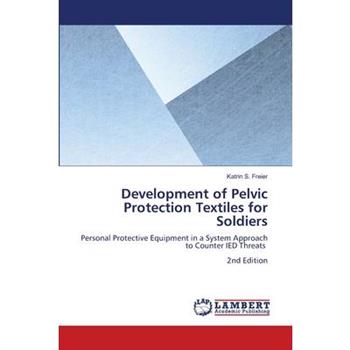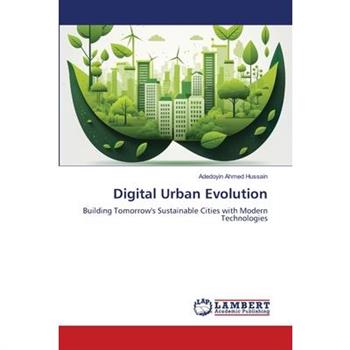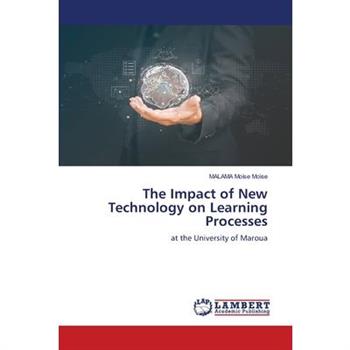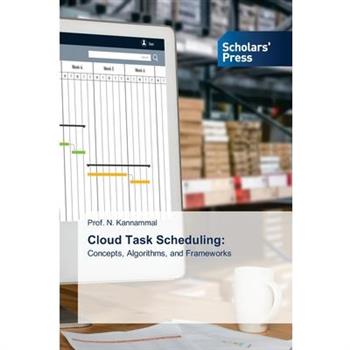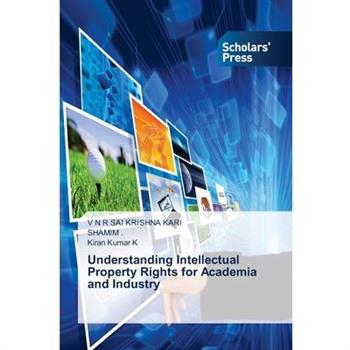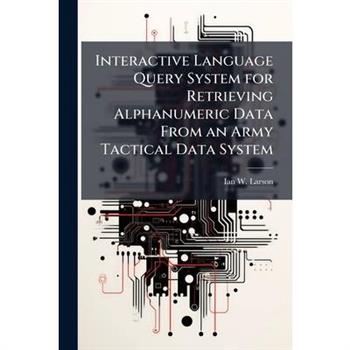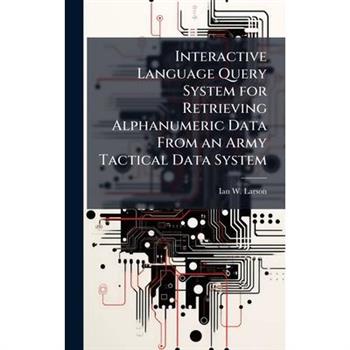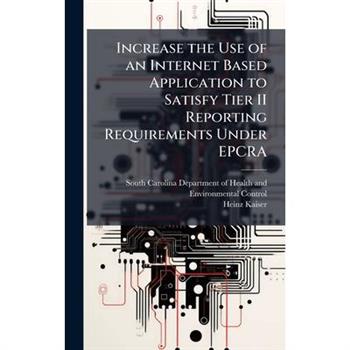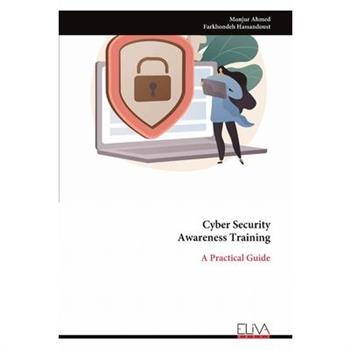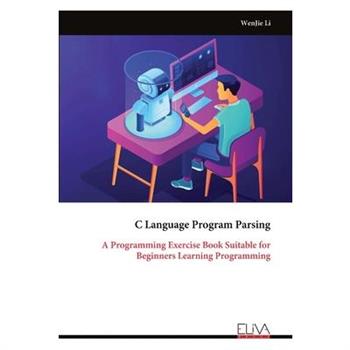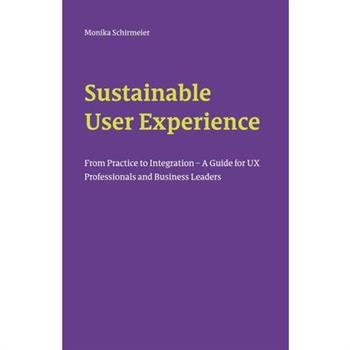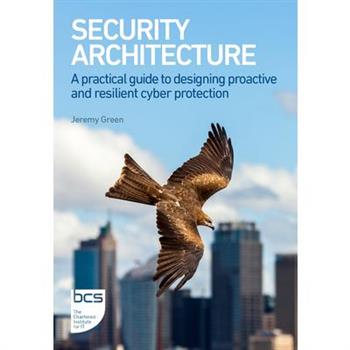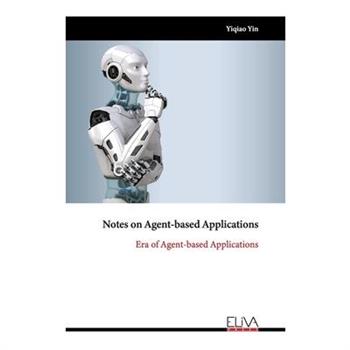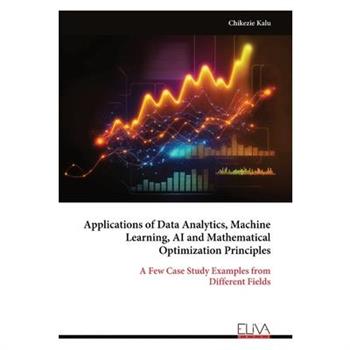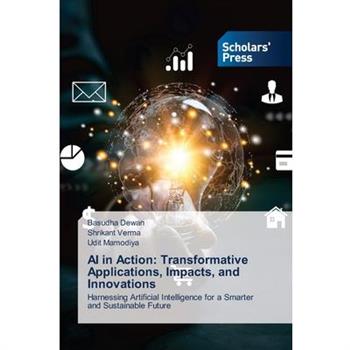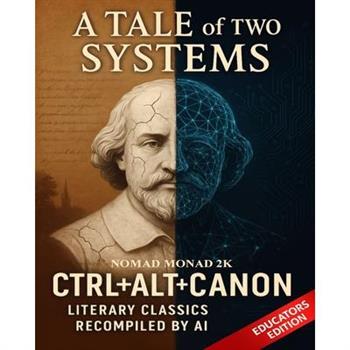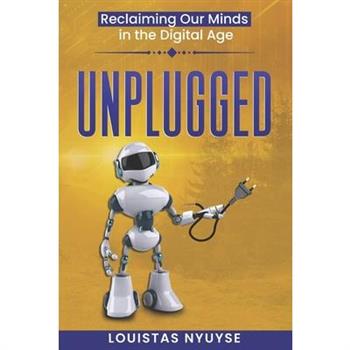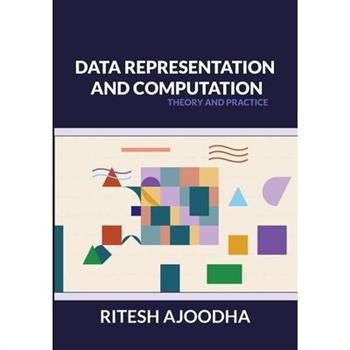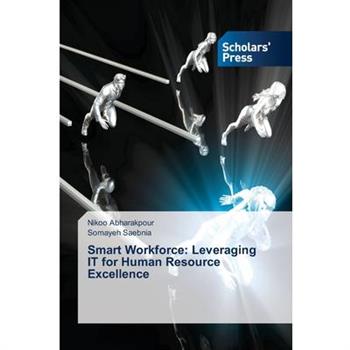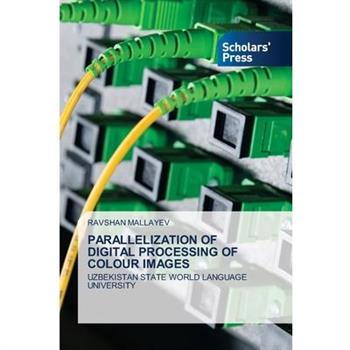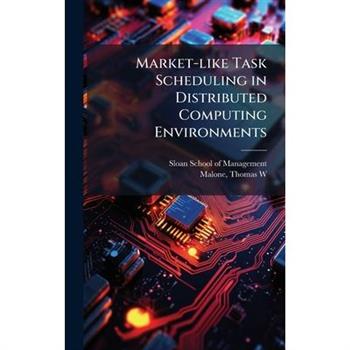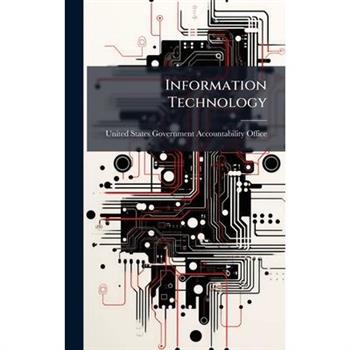Automatic Target Recognition User Interface Tool
A computer tool to aid in selecting the best Automatic Target Recognition (ATR) algorithm is developed. The program considers many quantifiers, accepts user-defined parameters, allows for changes in the operational environment and presents results in a meaningful way. It is written for Microsoft Excel. An ATR algorithm assigns a class label to a recognized target. General designations can include "Friend" and "Foe." The error of designating "Friend" as "Foe" as well as "Foe" as "Friend" comes with a high cost. Studying each algorithm's error can minimize this cost. Receiver Operating Characteristic (ROC) curves provide only information on the probabilities given a system state of declaring up to three class labels: "True," "False" or "Unknown." Other quantifiers, including an alternate ROC curve, are developed in this study to provide information on the probability of a system state given any of multiple declarations, which is more useful to the user. Sensitivity to prior probabilities, suggestions for user-defined parameters and areas for future research are identified as the User Interface Tool is described in detail in this thesis.This work has been selected by scholars as being culturally important, and is part of the knowledge base of civilization as we know it. This work was reproduced from the original artifact, and remains as true to the original work as possible. Therefore, you will see the original copyright references, library stamps (as most of these works have been housed in our most important libraries around the world), and other notations in the work.This work is in the public domain in the United States of America, and possibly other nations. Within the United States, you may freely copy and distribute this work, as no entity (individual or corporate) has a copyright on the body of the work.As a reproduction of a historical artifact, this work may contain missing or blurred pages, poor pictures, errant marks, etc. Scholars believe, and we concur, that this work is important enough to be preserved, reproduced, and made generally available to the public. We appreciate your support of the preservation process, and thank you for being an important part of keeping this knowledge alive and relevant.
Extensible Markup Language as a Weather Tool
This thesis is a proof of concept work that will extend the Core Mapping Application Program Interface (CMAPI) components to include weather data. The CMAPI project is headed by Air Force Research Lab (AFRL)/ Information Directorate Information Handling Branch (IFEB) at Rome labs in Rome, New York. This work extends the CMAPI project in two distinct areas. The first goal is to figure out how to overlay and display weather data on a dynamically linked Internet platform. This was accomplished by incorporating existing data from the Air Force Weather Agency (AFWA) into the CMAPI program in a static environment. The other goal is to learn about the Extensible Markup Language (XML) and how it can contribute to characterizing structured data (i.e., weather data output from AFWA). Once this tool can be exploited, a dynamic interaction between the CMAPI program and all AFWA products could be developed. The overall goal is to make it easy for the system, and the application of that system, to ingest and manipulate data.This work has been selected by scholars as being culturally important, and is part of the knowledge base of civilization as we know it. This work was reproduced from the original artifact, and remains as true to the original work as possible. Therefore, you will see the original copyright references, library stamps (as most of these works have been housed in our most important libraries around the world), and other notations in the work.This work is in the public domain in the United States of America, and possibly other nations. Within the United States, you may freely copy and distribute this work, as no entity (individual or corporate) has a copyright on the body of the work.As a reproduction of a historical artifact, this work may contain missing or blurred pages, poor pictures, errant marks, etc. Scholars believe, and we concur, that this work is important enough to be preserved, reproduced, and made generally available to the public. We appreciate your support of the preservation process, and thank you for being an important part of keeping this knowledge alive and relevant.
Leveraging ITIL/ITSM Into Network Operations
Air Force Network Operations (AFNetOps) controls the AF portion of the Global Information Grid (GIG). In order to do this efficiently, the USAF had to change the way it was operating and go away Centralized Control. Decentralized execution towards Centralized Control, Centralized Execution. This was done largely in part because the USAF was struggling in protection of critical information and the networks interconnection all of our installations. In the late 80's the United Kingdom created Information Technology Infrastructure Library (ITIL) whose purpose is to provide a practical no- nonsense framework for identifying, planning, delivering and supporting IT services for a business. Over the years, ITIL has become the defacto standard for all IT Service Management. In consolidating our Network Operations and Security Center operations, the USAF decided to take steps towards incorporating this standard. This research discovered how well ITSM was integrated into our AFNetOps posture and the collaborative efforts to standardize change management for the benefit of the Air Force. If indeed the USAF is to become another ITIL success story, it resides with the IT Service Management framework of guiding our NetOps.This work has been selected by scholars as being culturally important, and is part of the knowledge base of civilization as we know it. This work was reproduced from the original artifact, and remains as true to the original work as possible. Therefore, you will see the original copyright references, library stamps (as most of these works have been housed in our most important libraries around the world), and other notations in the work.This work is in the public domain in the United States of America, and possibly other nations. Within the United States, you may freely copy and distribute this work, as no entity (individual or corporate) has a copyright on the body of the work.As a reproduction of a historical artifact, this work may contain missing or blurred pages, poor pictures, errant marks, etc. Scholars believe, and we concur, that this work is important enough to be preserved, reproduced, and made generally available to the public. We appreciate your support of the preservation process, and thank you for being an important part of keeping this knowledge alive and relevant.
Analysis of Effects of BGP Black Hole Routing on a Network Like the NIPRNET
The Department of Defense (DoD) relies heavily on the Non-secure Internet Protocol Router Network (NIPRNET) to exchange information freely between departments, services, bases, posts, and ships. The NIPRNET is vulnerable to various attacks, to include physical and cyber attacks. One of the most frequently used cyber attacks by criminally motivated hackers is a Distributed Denial of Service (DDoS) attack. DDoS attacks can be used to exhaust network bandwidth and router processing capabilities, and as a leveraging tool for extortion. Border Gateway Protocol (BGP) black hole routing is a responsive defensive network technique for mitigating DDoS attacks. BGP black hole routing directs traffic destined to an Internet address under attack to a null address, essentially stopping the DDoS attack by dropping all traffic to the targeted system. This research examines the ability of BGP black hole routing to effectively defend a network like the NIPRNET from a DDoS attack, as well as examining two different techniques for triggering BGP black hole routing during a DDoS attack. This thesis presents experiments with three different DDoS attack scenarios to determine the effectiveness of BGP black hole routing. Remote-triggered black hole routing is then compared against customer-triggered black hole routing to examine how well each technique reacts under a DDoS attack. The results from this study show BGP black hole routing to be highly successful. It also shows that remote-triggered black hole routing is much more effective than customer-triggered.This work has been selected by scholars as being culturally important, and is part of the knowledge base of civilization as we know it. This work was reproduced from the original artifact, and remains as true to the original work as possible. Therefore, you will see the original copyright references, library stamps (as most of these works have been housed in our most important libraries around the world), and other notations in the work.This work is in the public domain in the United States of America, and possibly other nations. Within the United States, you may freely copy and distribute this work, as no entity (individual or corporate) has a copyright on the body of the work.As a reproduction of a historical artifact, this work may contain missing or blurred pages, poor pictures, errant marks, etc. Scholars believe, and we concur, that this work is important enough to be preserved, reproduced, and made generally available to the public. We appreciate your support of the preservation process, and thank you for being an important part of keeping this knowledge alive and relevant.
Extensible Markup Language as a Weather Tool
This thesis is a proof of concept work that will extend the Core Mapping Application Program Interface (CMAPI) components to include weather data. The CMAPI project is headed by Air Force Research Lab (AFRL)/ Information Directorate Information Handling Branch (IFEB) at Rome labs in Rome, New York. This work extends the CMAPI project in two distinct areas. The first goal is to figure out how to overlay and display weather data on a dynamically linked Internet platform. This was accomplished by incorporating existing data from the Air Force Weather Agency (AFWA) into the CMAPI program in a static environment. The other goal is to learn about the Extensible Markup Language (XML) and how it can contribute to characterizing structured data (i.e., weather data output from AFWA). Once this tool can be exploited, a dynamic interaction between the CMAPI program and all AFWA products could be developed. The overall goal is to make it easy for the system, and the application of that system, to ingest and manipulate data.This work has been selected by scholars as being culturally important, and is part of the knowledge base of civilization as we know it. This work was reproduced from the original artifact, and remains as true to the original work as possible. Therefore, you will see the original copyright references, library stamps (as most of these works have been housed in our most important libraries around the world), and other notations in the work.This work is in the public domain in the United States of America, and possibly other nations. Within the United States, you may freely copy and distribute this work, as no entity (individual or corporate) has a copyright on the body of the work.As a reproduction of a historical artifact, this work may contain missing or blurred pages, poor pictures, errant marks, etc. Scholars believe, and we concur, that this work is important enough to be preserved, reproduced, and made generally available to the public. We appreciate your support of the preservation process, and thank you for being an important part of keeping this knowledge alive and relevant.
If You Don't Know Where You Are Going, You Probably Will End Up Somewhere Else
The purpose of this research was to determine if computer network operations force presentation determination could benefit from studying examples from how functional combatant commands presented other forces and capabilities to the geographic combatant commands. Specifically, this study researched how the US Strategic Command presented space capabilities, how US Transportation Command presented logistics capabilities and how US Special Operations Command presented special operations forces. The research objective was achieved through a literature review of joint doctrine. The key topics examined in the literature review include: how do functional combatant commands interrelate with geographic combatant commands, how do combatant commands command and control cross-domain dependencies, and how do combatant commands manage cross-title relationships. The survey first looked for overarching lessons learned but determined each example (space, logistics, and special operations) necessarily used different force presentation models based upon resource allocation. This literature review of joint doctrine indicates US Strategic Command should consider implementing the following three actions in order to enact a strategy of developing organic CNO forces within each GCC. US Strategic Command should: (a) adapt the space SCA and proponent concepts. (b) use the logistics force presentation model as an intermediary step towards organic force presentation. (c) endorse a strategy of organic CNO force presentation within each GCC.This work has been selected by scholars as being culturally important, and is part of the knowledge base of civilization as we know it. This work was reproduced from the original artifact, and remains as true to the original work as possible. Therefore, you will see the original copyright references, library stamps (as most of these works have been housed in our most important libraries around the world), and other notations in the work.This work is in the public domain in the United States of America, and possibly other nations. Within the United States, you may freely copy and distribute this work, as no entity (individual or corporate) has a copyright on the body of the work.As a reproduction of a historical artifact, this work may contain missing or blurred pages, poor pictures, errant marks, etc. Scholars believe, and we concur, that this work is important enough to be preserved, reproduced, and made generally available to the public. We appreciate your support of the preservation process, and thank you for being an important part of keeping this knowledge alive and relevant.
Modeling and Analysis of Multicommodity Network Flows via Goal Programming
Information superiority, along with air superiority, must be achieved and maintained in a theatre of battle in order to increase efficacy and provide protection to our forces, both on the ground and in the air. Information, for the most part, utilizes an underlying network that is identified, and is of vital interest to a commander in a wartime or peacetime scenario. This underlying network must be modeled and analyzed in order to develop target prioritization and to analyze effects of target prioritization implementation. In this work goal programming is used to solve a minimum cost multicommodity network flow problem with multiple objectives. The networks to be analyzed are telecommunication networks, specifically, a single telecommunication network with multiple commodities (e.g., voice, video, data, etc.) flowing over it. This network consists of: linear objective function, linear cost arcs, fixed capacities, specific origin-destination pairs for each commodity. A minimum cost multicommodity network flow problem with multiple objectives can be successfully modeled using linear goal programming techniques. When properly modeled, network flow techniques may still be employed to exploit the pure network structure of a minimum cost multicommodity network flow problem with multiple objectives.This work has been selected by scholars as being culturally important, and is part of the knowledge base of civilization as we know it. This work was reproduced from the original artifact, and remains as true to the original work as possible. Therefore, you will see the original copyright references, library stamps (as most of these works have been housed in our most important libraries around the world), and other notations in the work.This work is in the public domain in the United States of America, and possibly other nations. Within the United States, you may freely copy and distribute this work, as no entity (individual or corporate) has a copyright on the body of the work.As a reproduction of a historical artifact, this work may contain missing or blurred pages, poor pictures, errant marks, etc. Scholars believe, and we concur, that this work is important enough to be preserved, reproduced, and made generally available to the public. We appreciate your support of the preservation process, and thank you for being an important part of keeping this knowledge alive and relevant.
Methodology for Integrating the Scenario Databases of Simulation Systems
The use of many different simulation systems by the United States Department of Defense has resulted in many different scenario data representations contained in heterogeneous databases. These heterogeneous databases all represent the same data concept, but have different semantics due to intrinsic variations among the data models. In this research, I describe a unified scenario database to allow interoperability and reuse of the scenario data components while avoiding the problems of data redundancy. Using the object-oriented approach, the data and schema of the scenario databases, represented in an object-oriented model, are integrated into a global database also represented in an object-oriented model. The global database schema is extended to allow semantic interoperability of database components by explicitly associating the semantics of the schema elements of the database components with the global metadata. I create the Integration Dictionary to represent the semantic interoperability and to store the translation mappings between each database component and the global database. The Integration Dictionary also provides support for object-oriented views generation. Next, I describe a methodology to integrate databases using the Integration Dictionary. My methodology is based on an analysis of the semantics of conceptual schema elements and on the identification of related elements in the global schema.This work has been selected by scholars as being culturally important, and is part of the knowledge base of civilization as we know it. This work was reproduced from the original artifact, and remains as true to the original work as possible. Therefore, you will see the original copyright references, library stamps (as most of these works have been housed in our most important libraries around the world), and other notations in the work.This work is in the public domain in the United States of America, and possibly other nations. Within the United States, you may freely copy and distribute this work, as no entity (individual or corporate) has a copyright on the body of the work.As a reproduction of a historical artifact, this work may contain missing or blurred pages, poor pictures, errant marks, etc. Scholars believe, and we concur, that this work is important enough to be preserved, reproduced, and made generally available to the public. We appreciate your support of the preservation process, and thank you for being an important part of keeping this knowledge alive and relevant.
Using Concept Maps to More Efficiently Create Intelligence Information Models
Information models are a critical tool for U.S. intelligence agencies to allow their customers to quickly and accurately comprehend their products. The Knowledge Pre-positioning System (KPS) is the standard repository for information models at the National Air and Space Intelligence Center (NASIC). The current approach used by NASIC to build a KPS information model is laborious and costly. Intelligence analysts design an information model using a manual, butcher-paper-based process. The output of their work is then entered into KPS by either a single NASIC KPS "database modeler" or a contractor (at a cost of roughly $100K to the organization). This thesis proposes a tool-supported approach to allow intelligence analysts to create KPS information models with almost no database modeler or contractor support. Our approach allows analysts to express an information model as a concept map, an analyst-understandable model of an intelligence domain. An existing tool, CmapTools [6], supports the analyst-in-the-loop process of concept map creation. A completed concept map is automatically converted into KPS by a prototype tool, called Cmap Conversion for KPS, created as part of this work. We restrict, to a reasonable degree, how analysts express concept maps within CmapTools to ensure that automatic conversion into KPS is possible. We validated our approach using a representative NASIC-provided KPS infor- mation model: performance of fixed-wing aircraft. Using our tools, a new information model was constructed in 4 hours and 20 minutes, a 89% improvement over the 40 hours estimated by NASIC to complete the same task using their existing approach. For this representative information model, NASIC estimates our approach would save them roughly $200K.This work has been selected by scholars as being culturally important, and is part of the knowledge base of civilization as we know it. This work was reproduced from the original artifact, and remains as true to the original work as possible. Therefore, you will see the original copyright references, library stamps (as most of these works have been housed in our most important libraries around the world), and other notations in the work.This work is in the public domain in the United States of America, and possibly other nations. Within the United States, you may freely copy and distribute this work, as no entity (individual or corporate) has a copyright on the body of the work.As a reproduction of a historical artifact, this work may contain missing or blurred pages, poor pictures, errant marks, etc. Scholars believe, and we concur, that this work is important enough to be preserved, reproduced, and made generally available to the public. We appreciate your support of the preservation process, and thank you for being an important part of keeping this knowledge alive and relevant.
Using Hierarchical Temporal Memory for Detecting Anomalous Network Activity
This research is motivated by the creation of intelligently autonomous cybercraft to reside in the intangible environment of cyberspace and maintain domain superiority. Specifically, this paper offers 7 challenges to the development of such a cybercraft. The focus is analysis of the claims Hierarchical Temporal Memory (HTM). In particular, HTM theory claims to facilitate intelligence in machines via accurate predictions. It further claims to be able to make accurate predictions of unusual worlds, like cyberspace. The primary objective is to provide evidence that HTM facilitates accurate predictions of unusual worlds. The second objective is to lend evidence that prediction is a good indication of intelligence. A commercial implementation of HTM theory is tested as an anomaly detection system and its ability to define network traffic (a major aspect of cyberspace) as benign or malicious is evaluated. Through the course of testing the performance of this implementation is poor. An independent algorithm is developed from a variant understanding of HTM theory. This alternate algorithm is independent of cyberspace and developed solely (but also in a contrived abstract world) to lend credibility to the use of prediction as a method of testing intelligence.This work has been selected by scholars as being culturally important, and is part of the knowledge base of civilization as we know it. This work was reproduced from the original artifact, and remains as true to the original work as possible. Therefore, you will see the original copyright references, library stamps (as most of these works have been housed in our most important libraries around the world), and other notations in the work.This work is in the public domain in the United States of America, and possibly other nations. Within the United States, you may freely copy and distribute this work, as no entity (individual or corporate) has a copyright on the body of the work.As a reproduction of a historical artifact, this work may contain missing or blurred pages, poor pictures, errant marks, etc. Scholars believe, and we concur, that this work is important enough to be preserved, reproduced, and made generally available to the public. We appreciate your support of the preservation process, and thank you for being an important part of keeping this knowledge alive and relevant.
A Cyber Special Program Office
Department of Defense (DOD) standard 8320.02 establishes the need for all subordinate organizations to share information through metadata tagging of information. The United States Air Force's recent consolidation of cyber capabilities under the 24th Numbered Air Force formerly AFCYBER, under the Air Force Space Command (AFSPC) major command, and the DOD's proposed United States Cyber Command (USCYBERCOM) arrange the strategic levels of cyber capabilities. However, to meet DOD Standard 8320.02 on the operational and tactical levels, Air Force leaders need to establish a special program office (SPO), or cyber SPO, which collectively manages all cyber and communications assets providing standardized, integrated systems, with consolidated, cradle-to-grave asset and information management similar to existing aircraft and space platform SPOs. This research paper conceptually envisions a proposed framework for how a cyber SPO would look, function, and its initial focus items and its efforts to meet DOD Standard 8320.02, for information sharing. Using the proposed cyber SPO solutions and resulting efforts to meet the 8320.02 standard, the Air Force has the opportunity to save a minimum of 21.8 million dollars per year in network costs, thousands of man hours in reduced information processing times, and improving workflow processes across the Air Force. Applied across the DOD's total population, there is a potential opportunity, for saving an additional 128 million dollars (approximate) in network costs utilizing the same cyber SPO concepts, with even greater work force, man-hour savings.This work has been selected by scholars as being culturally important, and is part of the knowledge base of civilization as we know it. This work was reproduced from the original artifact, and remains as true to the original work as possible. Therefore, you will see the original copyright references, library stamps (as most of these works have been housed in our most important libraries around the world), and other notations in the work.This work is in the public domain in the United States of America, and possibly other nations. Within the United States, you may freely copy and distribute this work, as no entity (individual or corporate) has a copyright on the body of the work.As a reproduction of a historical artifact, this work may contain missing or blurred pages, poor pictures, errant marks, etc. Scholars believe, and we concur, that this work is important enough to be preserved, reproduced, and made generally available to the public. We appreciate your support of the preservation process, and thank you for being an important part of keeping this knowledge alive and relevant.
A Line-of-Sight Sensor Network for Wide Area Video Surveillance
Substantial performance improvement of a wide area video surveillance network can be obtained with addition of a Line-of-Sight sensor. The research described in this thesis shows that while the Line-of-Sight sensor cannot monitor areas with the ubiquity of video cameras alone, the combined network produces substantially fewer false alarms and superior location precision for numerous moving people than video. Recent progress in fabrication of inexpensive video cameras have triggered a new approach to wide area surveillance of busy areas such as modeling an airport corridor as a distributed sensor network problem. The computation and communication to establish image registration between the cameras grows rapidly as the number cameras increases. Computation is required to detect people in each image; establish a correspondence between people in two or more images; compute exact 3-D position from each corresponding-pair; and temporally track targets in space-and-time. Substantial improvement can be obtained with addition of a Line-of-Sight sensor as a location detection system to decoupling the detection, localization, and identification subtasks. That is, if the 'where' can be answered by a location detection system, the 'what' can be addressed by the video most effectively.This work has been selected by scholars as being culturally important, and is part of the knowledge base of civilization as we know it. This work was reproduced from the original artifact, and remains as true to the original work as possible. Therefore, you will see the original copyright references, library stamps (as most of these works have been housed in our most important libraries around the world), and other notations in the work.This work is in the public domain in the United States of America, and possibly other nations. Within the United States, you may freely copy and distribute this work, as no entity (individual or corporate) has a copyright on the body of the work.As a reproduction of a historical artifact, this work may contain missing or blurred pages, poor pictures, errant marks, etc. Scholars believe, and we concur, that this work is important enough to be preserved, reproduced, and made generally available to the public. We appreciate your support of the preservation process, and thank you for being an important part of keeping this knowledge alive and relevant.
An Update on Analyzing Differences Between Public and Private Sector Information Resource Management
Change is a constant within our contemporary IRM environment. The rapid development of information and communication technologies has been the most predominant among the many agents of change that are forcing a reevaluation of the role of the IRM professional. Few studies to date have compared public and private sector CIO perceptions concerning the IRM challenges and critical technologies faced by their organization. An earlier study concluded that the sectors' CIOs do perceive to be faced with many of the same challenges and also view many of the same technologies as critical to the organization's operations. A limiting factor identified in that study was the temporal separation of sector sampling. Any conclusions comparing the public and private sectors were based on survey responses separated by almost one year. The goal of this research is to validate if public and private sector senior IRM managers perceive to still be faced with the same challenges and view the same technologies as being critical to an organization's IRM requirements.This work has been selected by scholars as being culturally important, and is part of the knowledge base of civilization as we know it. This work was reproduced from the original artifact, and remains as true to the original work as possible. Therefore, you will see the original copyright references, library stamps (as most of these works have been housed in our most important libraries around the world), and other notations in the work.This work is in the public domain in the United States of America, and possibly other nations. Within the United States, you may freely copy and distribute this work, as no entity (individual or corporate) has a copyright on the body of the work.As a reproduction of a historical artifact, this work may contain missing or blurred pages, poor pictures, errant marks, etc. Scholars believe, and we concur, that this work is important enough to be preserved, reproduced, and made generally available to the public. We appreciate your support of the preservation process, and thank you for being an important part of keeping this knowledge alive and relevant.
Limitations of a True Random Number Generator in a Field Programmable Gate Array
Random number generators are used in many areas of engineering, computer science, most notably in simulations and cryptographic applications. Only a true random number generator is secure because the output bits are non-repeating and non-reproducible. A true random number generator on a field programmable gate array allows the generator on chip reducing the possibility of a breach in security. An oscillator sampling technique is an effective TRNG in a Xilinx FPGA. This research examines how the differences in period of the oscillators, the size of the jitter zone, and sampling on the rising and falling edge of the oscillator rather than just the rising edge affects the TRNG. The proportion of the size of the jitter zone compared to the period difference between the two oscillators limits the performance. As the jitter zone gets larger, the proportion of the jitter zone to the difference in periods of the oscillators must increase for the output to remain random. Sampling on the rising and falling edge instead of only the rising was not effective. The output was random for only a jitter zone of 24 ps with a period difference of 50 ps and 100 ps.This work has been selected by scholars as being culturally important, and is part of the knowledge base of civilization as we know it. This work was reproduced from the original artifact, and remains as true to the original work as possible. Therefore, you will see the original copyright references, library stamps (as most of these works have been housed in our most important libraries around the world), and other notations in the work.This work is in the public domain in the United States of America, and possibly other nations. Within the United States, you may freely copy and distribute this work, as no entity (individual or corporate) has a copyright on the body of the work.As a reproduction of a historical artifact, this work may contain missing or blurred pages, poor pictures, errant marks, etc. Scholars believe, and we concur, that this work is important enough to be preserved, reproduced, and made generally available to the public. We appreciate your support of the preservation process, and thank you for being an important part of keeping this knowledge alive and relevant.
Augmenting Latent Dirichlet Allocation and Rank Threshold Detection With Ontologies
In an ever-increasing data rich environment, actionable information must be extracted, filtered, and correlated from massive amounts of disparate often free text sources. The usefulness of the retrieved information depends on how we accomplish these steps and present the most relevant information to the analyst. One method for extracting information from free text is Latent Dirichlet Allocation (LDA), a document categorization technique to classify documents into cohesive topics. Although LDA accounts for some implicit relationships such as synonymy (same meaning) it often ignores other semantic relationships such as polysemy (different meanings), hyponym (subordinate), meronym (part of), and troponomys (manner). To compensate for this de ciency, we incorporate explicit word ontologies, such as WordNet, into the LDA algorithm to account for various semantic relationships. Experiments over the 20 Newsgroups, NIPS, OHSUMED, and IED document collections demonstrate that incorporating such knowledge improves perplexity measure over LDA alone for given parameters.This work has been selected by scholars as being culturally important, and is part of the knowledge base of civilization as we know it. This work was reproduced from the original artifact, and remains as true to the original work as possible. Therefore, you will see the original copyright references, library stamps (as most of these works have been housed in our most important libraries around the world), and other notations in the work.This work is in the public domain in the United States of America, and possibly other nations. Within the United States, you may freely copy and distribute this work, as no entity (individual or corporate) has a copyright on the body of the work.As a reproduction of a historical artifact, this work may contain missing or blurred pages, poor pictures, errant marks, etc. Scholars believe, and we concur, that this work is important enough to be preserved, reproduced, and made generally available to the public. We appreciate your support of the preservation process, and thank you for being an important part of keeping this knowledge alive and relevant.
The Automatic Identification of Text During the Disassembly of Binary Machine Language
The goal of the research presented was to find a way to effectively identify text data and instructions in a machine language program written for Intel's 80 x 86 architecture and Microsoft's Disk Operating System (MS-DOS) following the command (.com) file format. A review of disassembler technology suggested that a pattern matching technique could be an effective technique for identifying text data in a machine language file. A series of tests were conducted to determine the effectiveness of a pattern matching technique. Results from the tests suggest that using a pattern matching technique is effective at identifying text data in a binary machine language file. The pattern matching algorithm presented in this research was eighty-six percent effective at identifying text data in fifteen test machine language files written for MS-DOS following the .com format.This work has been selected by scholars as being culturally important, and is part of the knowledge base of civilization as we know it. This work was reproduced from the original artifact, and remains as true to the original work as possible. Therefore, you will see the original copyright references, library stamps (as most of these works have been housed in our most important libraries around the world), and other notations in the work.This work is in the public domain in the United States of America, and possibly other nations. Within the United States, you may freely copy and distribute this work, as no entity (individual or corporate) has a copyright on the body of the work.As a reproduction of a historical artifact, this work may contain missing or blurred pages, poor pictures, errant marks, etc. Scholars believe, and we concur, that this work is important enough to be preserved, reproduced, and made generally available to the public. We appreciate your support of the preservation process, and thank you for being an important part of keeping this knowledge alive and relevant.
A Cyberspace Command and Control Model
Since its inception, the Air Force Chaplain Corps has recruited, trained and sustained a ready force of professionals to minister to combatants and in so doing ready them for the battles they will fight in defense of our national interests. This largely Cold War model of ministry has served our nation well and many of its tenets must be held to tightly. But the long war we find ourselves in, a war all too often described and confused by religious innuendo, needs a chaplaincy willing to take calculated risks outside the wire to do what chaplains alone are credentialed to do. For in sitting "holy man" with "holy man," listening to and telling the stories of our respective communities, hearts and minds cannot help but be won.This work has been selected by scholars as being culturally important, and is part of the knowledge base of civilization as we know it. This work was reproduced from the original artifact, and remains as true to the original work as possible. Therefore, you will see the original copyright references, library stamps (as most of these works have been housed in our most important libraries around the world), and other notations in the work.This work is in the public domain in the United States of America, and possibly other nations. Within the United States, you may freely copy and distribute this work, as no entity (individual or corporate) has a copyright on the body of the work.As a reproduction of a historical artifact, this work may contain missing or blurred pages, poor pictures, errant marks, etc. Scholars believe, and we concur, that this work is important enough to be preserved, reproduced, and made generally available to the public. We appreciate your support of the preservation process, and thank you for being an important part of keeping this knowledge alive and relevant.
Increase the Use of an Internet Based Application to Satisfy Tier II Reporting Requirements Under EPCRA
For a successful response to a hazardous material accident, first responders need hazardous materials information quickly, completely, accurately, and in an easily understood format. E-Plan's Online Tier II Reporting System is a secure, internet accessible repository of facility and hazardous material information. The system provides critical chemical information at the scene and is in use in many communities nationwide. The two main goals of this project are: 1) To increase the number of facilities submitting the Tier II reports directly into E-plan in order to reduce the resources required for data entry, manipulating electronic files, and calling facilities for corrections and clarifications. 2) To reduce the amount of time needed to make the complete Tier II inventory available to first responders.This work has been selected by scholars as being culturally important, and is part of the knowledge base of civilization as we know it. This work was reproduced from the original artifact, and remains as true to the original work as possible. Therefore, you will see the original copyright references, library stamps (as most of these works have been housed in our most important libraries around the world), and other notations in the work.This work is in the public domain in the United States of America, and possibly other nations. Within the United States, you may freely copy and distribute this work, as no entity (individual or corporate) has a copyright on the body of the work.As a reproduction of a historical artifact, this work may contain missing or blurred pages, poor pictures, errant marks, etc. Scholars believe, and we concur, that this work is important enough to be preserved, reproduced, and made generally available to the public. We appreciate your support of the preservation process, and thank you for being an important part of keeping this knowledge alive and relevant.
Data Integration
Perhaps the battlefield of the future will benefit from plug and play satellites that are launched within days and capable of autonomous and deconflicted cross-cueing with each other and sensors on the ground, in the air, and sea. Whether or not we reach the elusive goal of autonomous, real-time interrogation and surveillance, we are assured of being in a data-rich environment. The challenge is how to make diverse data useable by many not just locked in valuable but separate stockpiles available to a few. While there are very real institutional, structural, process, and security challenges inhibiting data integration, these challenges are not insurmountable. The ultimate goal is to convert the data challenge into an incredible intelligence, decision-making, and action-optimizing resource. This paper charts a path forward for data integration and calls for a unified data space test bed in the near term to further joint and coalition efforts.This work has been selected by scholars as being culturally important, and is part of the knowledge base of civilization as we know it. This work was reproduced from the original artifact, and remains as true to the original work as possible. Therefore, you will see the original copyright references, library stamps (as most of these works have been housed in our most important libraries around the world), and other notations in the work.This work is in the public domain in the United States of America, and possibly other nations. Within the United States, you may freely copy and distribute this work, as no entity (individual or corporate) has a copyright on the body of the work.As a reproduction of a historical artifact, this work may contain missing or blurred pages, poor pictures, errant marks, etc. Scholars believe, and we concur, that this work is important enough to be preserved, reproduced, and made generally available to the public. We appreciate your support of the preservation process, and thank you for being an important part of keeping this knowledge alive and relevant.
Process and Information Practice for Information Systems
Security-Driven Human Resource Management System
Over the years, theft of staff/customer data has been of major concern to government agencies and corporate organizations alike. This affects the confidentiality of the persons affected and the integrity of such organization. This work examined various Human Resource Management Systems models and proposed a security-based model OnibereOdunayoSecurity-4 (OOS-4). The OOS-4 HRIS Model catered for four-levels of security. This book, therefore, using an iterative software development approach to building and deploying software, a Human Resource Management System was implemented and tested. Standard authentication and authorization were maintained and a role-based user access mechanism employed. This was implemented by applying new levels of security with regards to the available functions of the system. All data in storage are also encrypted using an Adapted ROT-13 Encryption Algorithm, hence making the data of no use to anyone who steals it or employees who may want to trade the organisation's data. This work should be useful to students of Computer Science, Information Technology, and Database Administrators, application developers or anyone concerned with securing personnel data.
Collective Principles and the Formation of the Internet
This book describes how distinctive socio-political commitments and cultural practices developed upon the internet in the later 20th and early 21st century and considers what lies ahead in those terms. Five decades after the internet's technological structure began to be erected, and three decades after engagement with it started burgeoning, an active and global collective formation has grown upon it. This collective formation is dubbed the 'Internet Polity' here and is distinguishable from, and yet embedded within, real-world collectives. Despite divergences and conflicts, its organization is based on certain shared principles and its culture characterized by distinctive discursive practices. This book examines how the Internet Polity developed until 2010, in terms of the technological and cultural features that have supported it. Accordingly, the Internet Polity's emerging prospects are considered. Topics and features: Gives an original framework for understanding the global collective grounded on the internet as a social space Presents a history of the technological basis and communication features of this collective, from the beginnings to 2010 Offers an interdisciplinary perspective that cuts across most disciplines of the humanities and social sciences Describes the histories of and debates surrounding popular terms like 'cyberspace, ' 'information superhighway, ' 'Internet of Things, ' 'hacker, ' etc. This wide-ranging and original book is for researchers, graduate students, professionals and informed readers who are interested in information technology and political culture, digital humanities, sociolinguistics and communication studies, history of the internet, contemporary social organization and political philosophy.
Combinatorial Algorithms
This book constitutes the refereed proceedings of the 36th International Workshop on Combinatorial Algorithms, IWOCA 2025, held in Bozeman, MT, USA, during July 21-24, 2025. The 32 full papers and two abstracts of invited talks included in this book were carefully reviewed and selected from 71 submissions. The IWOCA conference series has provided an annual forum for researchers who design algorithms to address the myriad combinatorial problems underlying computer applications in science, engineering, and business.
Development of Pelvic Protection Textiles for Soldiers
The highest threat soldiers are facing on today's missions is caused by the effects of Improvised Explosive Devices (IED). Especially the pelvic region is frequently affected. A very private but crucial topic has led to reconsider the current groin protection and develop an adequate alternative. The multidimensional effect parameters of an IED explosion are analyzed and correlated with resulting traumata. Three protective zones are defined with regards to the required protection levels. Theoretical perspectives and findings are transferred into the development of an innovative pelvic protective design concept. The two product based system provides protection against IED based fragmentation while offering the full range of physiological comfort properties. Complex analysis and evaluation of the wide spectrum of individual textile characteristics lead to the development of a high resistant textile structure providing properties addressing the soldier's comfort requirements and safety. The textile builds the basis for the multifunctional pelvic protection system. The thesis compiles conceptual and scientific fundamentals creating an innovative step forward for soldier's protection.
The Art of Inpainting
The art of image restoration and completion has entered a new phase thanks to digital technology. Indeed, virtual restoration is sometimes the only feasible option available to us, and it has, under the name 'inpainting', grown, from methods developed in the mathematics and computer vision communities, to the creation of tools used routinely by conservators and historians working in the worlds of fine art and cinema. The aim of this book is to provide, for a broad audience, a thorough description of imaging inpainting techniques. The book has a two-layer structure. In one layer, there is a general and more conceptual description of inpainting; in the other, there are boxed descriptions of the essentials of the mathematical and computational details. The idea is that readers can easily skip those boxes without disrupting the narrative. Examples of how the tools can be used are drawn from the Fitzwilliam Museum, Cambridge collections.
Digital Urban Evolution
In an era of rapid technological advancement, the intersection of innovation and urban sustainability has become more crucial than ever. "Digital Urban Evolution" presents a comprehensive analysis of cutting-edge technologies reshaping our cities. From cloud computing and 5G networks to IoT integration, this authoritative work explores how emerging technologies are revolutionizing urban development while promoting sustainability. The book offers valuable insights for researchers, practitioners, and policymakers, examining the practical applications of these innovations in enhancing individual security, satisfaction, and operational efficiency in urban areas. Drawing from extensive research and real-world examples, it provides a thorough overview of current trends, challenges, and solutions in urban sustainability. This timely work not only catalogues the latest technological advancements but also presents actionable frameworks for their implementation, making it an indispensable resource for anyone involved in urban planning, technology integration, or sustainable development.
The Impact of New Technology on Learning Processes
This work focused on the impact of new technology on learning processes at the University of Maroua. It aimed at assessing the level of effectiveness of new technology in the education system. Students make use of diverse functionalities for many reasons. Most often, they use them so as to improve their learning situations or for other purposes. This study was structured into three different chapters. The first presented the positive effects of new technology on the learning. The second chapter provided some negative aspects, and the last examined encountered problems by students during online classes. Few challenges were identified and, solutions were proposed.
Cloud Task Scheduling
Cloud task scheduling is the process of assigning computational tasks to cloud resources-like virtual machines or containers-to optimize performance and meet user-defined goals such as minimizing execution time (makespan), reducing costs, and maximizing resource utilization. Given the dynamic, heterogeneous, and large-scale nature of cloud environments, task scheduling is a complex and NP-hard problem.This field has evolved from classical heuristics (e.g., FCFS, Min-Min) to advanced techniques such as metaheuristics (e.g., Genetic Algorithms, PSO, ACO) and AI-driven approaches like reinforcement learning and deep learning. Real-world frameworks like Hadoop YARN, Kubernetes, and CloudSim implement these strategies to manage workloads effectively.Modern cloud scheduling emphasizes multi-objective optimization, balancing trade-offs between speed, cost, energy consumption, and fairness. Emerging trends include edge computing, serverless scheduling, and green computing, positioning task scheduling as a foundational challenge for the future of cloud services.
Understanding Intellectual Property Rights for Academia and Industry
Intellectual Property Rights (IPR) are essential tools in today's innovation-driven global economy. From academic research to industrial application, understanding the framework of IPR is vital for creators, researchers, startups, and legal professionals.This book is designed to serve as a one-stop guide to IPR - from the basics to advanced application, policy frameworks, global treaties, and case studies. The goal is to empower readers with knowledge and practical tools to protect and monetize intellectual property effectively. This book is written with special focus on Indian legal frameworks, case studies, and the global IP ecosystem, making it particularly relevant for students, researchers, legal experts, innovators, and entrepreneurs.We sincerely hope this guide will act as both a primer and a reference for years to come.
Interactive Language Query System for Retrieving Alphanumeric Data From an Army Tactical Data System
For a decade the United States Army has been investigating the uses of computers in the area of tactical operations. While demonstrating that computer based tactical data processing systems can provide useful assistance, field tests have uncovered some operational problems. One major problem has been the inability of prestructured formats to meet user requirements of flexibility and generality in querying the tactical data system for alphanumeric data. The purpose of this study was to describe a query system, based on an interactive query language (IQL), as an alternative to this use of formats. The methodology encompassed four steps. First, user requirements for interactive query were stated, based on an analysis of data flow in a division tactical operations center. Second, the assumed hardware and software capabilities of a tactical data system which would use the proposed query system were stated. Third, research of the literature and of existing systems having IQLs was conducted to determine the state of the art in IQL design. Fourth, a proposed query system was described.This work has been selected by scholars as being culturally important, and is part of the knowledge base of civilization as we know it. This work was reproduced from the original artifact, and remains as true to the original work as possible. Therefore, you will see the original copyright references, library stamps (as most of these works have been housed in our most important libraries around the world), and other notations in the work.This work is in the public domain in the United States of America, and possibly other nations. Within the United States, you may freely copy and distribute this work, as no entity (individual or corporate) has a copyright on the body of the work.As a reproduction of a historical artifact, this work may contain missing or blurred pages, poor pictures, errant marks, etc. Scholars believe, and we concur, that this work is important enough to be preserved, reproduced, and made generally available to the public. We appreciate your support of the preservation process, and thank you for being an important part of keeping this knowledge alive and relevant.
Interactive Language Query System for Retrieving Alphanumeric Data From an Army Tactical Data System
For a decade the United States Army has been investigating the uses of computers in the area of tactical operations. While demonstrating that computer based tactical data processing systems can provide useful assistance, field tests have uncovered some operational problems. One major problem has been the inability of prestructured formats to meet user requirements of flexibility and generality in querying the tactical data system for alphanumeric data. The purpose of this study was to describe a query system, based on an interactive query language (IQL), as an alternative to this use of formats. The methodology encompassed four steps. First, user requirements for interactive query were stated, based on an analysis of data flow in a division tactical operations center. Second, the assumed hardware and software capabilities of a tactical data system which would use the proposed query system were stated. Third, research of the literature and of existing systems having IQLs was conducted to determine the state of the art in IQL design. Fourth, a proposed query system was described.This work has been selected by scholars as being culturally important, and is part of the knowledge base of civilization as we know it. This work was reproduced from the original artifact, and remains as true to the original work as possible. Therefore, you will see the original copyright references, library stamps (as most of these works have been housed in our most important libraries around the world), and other notations in the work.This work is in the public domain in the United States of America, and possibly other nations. Within the United States, you may freely copy and distribute this work, as no entity (individual or corporate) has a copyright on the body of the work.As a reproduction of a historical artifact, this work may contain missing or blurred pages, poor pictures, errant marks, etc. Scholars believe, and we concur, that this work is important enough to be preserved, reproduced, and made generally available to the public. We appreciate your support of the preservation process, and thank you for being an important part of keeping this knowledge alive and relevant.
Increase the Use of an Internet Based Application to Satisfy Tier II Reporting Requirements Under EPCRA
For a successful response to a hazardous material accident, first responders need hazardous materials information quickly, completely, accurately, and in an easily understood format. E-Plan's Online Tier II Reporting System is a secure, internet accessible repository of facility and hazardous material information. The system provides critical chemical information at the scene and is in use in many communities nationwide. The two main goals of this project are: 1) To increase the number of facilities submitting the Tier II reports directly into E-plan in order to reduce the resources required for data entry, manipulating electronic files, and calling facilities for corrections and clarifications. 2) To reduce the amount of time needed to make the complete Tier II inventory available to first responders.This work has been selected by scholars as being culturally important, and is part of the knowledge base of civilization as we know it. This work was reproduced from the original artifact, and remains as true to the original work as possible. Therefore, you will see the original copyright references, library stamps (as most of these works have been housed in our most important libraries around the world), and other notations in the work.This work is in the public domain in the United States of America, and possibly other nations. Within the United States, you may freely copy and distribute this work, as no entity (individual or corporate) has a copyright on the body of the work.As a reproduction of a historical artifact, this work may contain missing or blurred pages, poor pictures, errant marks, etc. Scholars believe, and we concur, that this work is important enough to be preserved, reproduced, and made generally available to the public. We appreciate your support of the preservation process, and thank you for being an important part of keeping this knowledge alive and relevant.
Cyber Security Awareness Training
This book presents a discussion on how to design and implement a cyber security training & awareness programme in organisations. In this book, we use the term 'CSTAP' as the short form to refer to Cyber Security Training & Awareness Programme. The aim of this book is to provide short, succinct, plain & simple recommendations for designing and running a successful CSTAP. The guidelines in this book may be useful for professionals working as part of IS/IT/Cyber Security team of an organisation. The guidelines in this book may be useful to design and implement an organisation wide CSTAP by following a structured approach. This book may also be useful for aspiring Cyber Security leaders and anyone who is stepping into Cyber Security leadership role. Students in IS/IT & Computer Science with exposure to Cyber Security especially strategic part of Cyber Security may also find this book useful.
C Language Program Parsing
This book is based on the book "C Programming Fifth Edition" written by Tan Haoqiang, contains the answer to each chapter of the topic, each topic is I first use the VS2019 compiler to knock once, and then write the code ideas to CSDN, and then posted to the column. When encountering a topic that I do not know, I will go online to search for relevant code and solution ideas, understand and then practice on the machine until the result is correct. This exercise is divided into three parts: A solution, B code, C running results. As long as there is code for each problem, there will be results to verify, so the correctness of this exercise analysis is trustworthy. There is a joke in programming "Treat computers like girlfriends, because computers are never wrong." If a program fails to run, it must be our problem, that is, our code has more or less grammatical errors and logical errors. For beginners, program errors are normal, I recommend that we use VS2019 compiler for more practice, in the program error must be more debugging, so that we can feel how the program runs, and the process of running the program.
Sustainable User Experience
Sustainability is one of the key concerns of today's society, and companies are increasingly challenged to integrate sustainable practices into all areas of their business activities. Sustainability also plays a crucial role in the UX process, as design decisions directly influence how resource-efficient, socially responsible, and economically viable digital products are.This book provides a guide on how to purposefully embed sustainability into user experience design to achieve long-term positive impacts on the environment, society, and business performance. While management is responsible for strategic direction and resource allocation, it is up to designers and the entire implementation team to transform this vision into concrete products.
Security Architecture
Security Architecture is a driver for proactive, strategic, and comprehensive protection. Understand how to think like an attacker, design like an architect, and implement with the precision of an engineer. With an ever changing security landscape defined by escalating cyber threats and unprecedented vulnerabilities, Security Architecture stands as an essential guide to understand how good security architecture prevents breaches. Whether you are a seasoned security professional or an emerging architect, this book equips you with the knowledge and tools to build resilient, future-proof security architectures that not only helps anticipate attacks but actively thwart them proving its value to the organisation. Delve into a world where technology and strategy converge. Blueprints for defence are designed to evolve as fast as the threats they combat. Understand the principles behind zero trust, PAM, adaptive defences, and the integration of security into agile environments. Through real-world case studies, from critical infrastructure breaches to sophisticated supply chain attacks, this book provides actionable insights to help you navigate the complex landscape of modern cybersecurity.
Notes on Agent-based Applications
This book is a comprehensive guide designed to lead readers through the fascinating world of programming, machine learning, and artificial intelligence, from the very basics to cutting-edge applications. Beginning with foundational Python concepts, it gradually introduces readers to the intricacies of machine learning, neural networks, and deep learning architectures like convolutional neural networks. As the journey unfolds, the book delves into more advanced topics such as natural language understanding and the transformative power of large language models (LLMs), including modern developments like transformers and GPT models. Readers will not only learn how to implement these models but will also explore practical, agent-based applications, enabling machines to act intelligently and autonomously-writing and executing code, solving complex tasks, and interacting with APIs in dynamic environments. With a clear, structured approach and step-by-step tutorials, this book offers both beginners and experienced AI enthusiasts an accessible yet deeply insightful dive into one of the most exciting fields of technology today. Whether you're aiming to understand the basics or build real-world applications, this book provides a roadmap to mastering AI. It is always amazing to connect with my audience. Please feel free to connect with me from my personal site: https: //www.y-yin.io/. Both LinkedIn and YouTube can be accessed from the personal site.
Applications of Data Analytics, Machine Learning, AI and Mathematical Optimization Principles
There is no doubt that the various needs of our modern world, comes with increase in the importance of data, increase in the amount of data, an increase in the variety of data, and increase in diverse data-driven technologies. Modern technologies such as Artificial intelligence and Machine Learning processes and applications which include processes to save project cost and time are based on the foundation formed by Data Science, Data Analytics, Mathematics and its principles that contributes to various fields and projects by software data-driven applications that can make the decision-making process easier and quicker; thereby increasing value, and creating a better, more productive world. Therefore, the big questions of where, when, why and how the principles of Machine Learning, Artificial Intelligence, Analytics and Mathematical Optimization in relation to Data as applied to various fields becomes pertinent, and the evidence of case study practical applications are seen as very useful for industry and the academia. This book presents some of these important case study examples across different fields of study as an excellent background and opener to more possibilities and the great potentials of these Data, AI/ML and Mathematical principles in our data-centric, dynamic world.
E-Government Digital Frontiers - Transforming Public Administration through Technology
Digital transformation has become a defining aspect of contemporary public administration, challenging traditional governance models and prompting a re-evaluation of institutional capacities, service delivery mechanisms, and citizen engagement practices. E-Government Digital Frontiers - Transforming Public Administration through Technology offers a comprehensive and analytically grounded examination of how digital technologies are reshaping the public sector. This volume addresses key issues such as designing user-centric services, governing data and digital infrastructure, ethically deploying artificial intelligence, cybersecurity strategies, and the imperative of digital inclusion. Drawing on interdisciplinary perspectives, the book provides a critical resource for researchers, students, and professionals across the fields of digital governance, public administration, information systems, and public policy. It contributes to scholarly discourse by exploring the interplay between institutional transformation and technological innovation while offering practical insights relevant to implementing e-government initiatives. Emphasising the opportunities and constraints of digital reform, the volume highlights the strategic, ethical, and operational dimensions of technology in the public domain. As such, it serves as a timely and valuable reference for understanding the complexities and future trajectories of digital-era governance.
AI in Action
Artificial Intelligence in Action: Transformative Applications, Impacts, and Innovations explores the integration of AI across key sectors. Chapter 1 analyzes AI in cybersecurity, detailing techniques, applications, benefits, challenges, and policy impacts. Chapter 2 examines AI's role in reshaping organizational culture, leadership, and decision-making in the digital economy, alongside ethical considerations. Chapter 3 presents the design and deployment of real-time object detection and classification systems using AI frameworks like TensorFlow, with testing and analysis. Chapter 4 focuses on machine learning approaches to stock market prediction, covering fundamental and technical analyses. Chapter 5 highlights AI in medicine, including diagnostics, predictive data use, tailored care, virtual health aids, legal-ethical concerns, future trends like intelligent robotics, and limitations of current research. The work emphasizes AI's benefits, risks, and transformative potential across domains.
A Tale of Two Systems
"A Tale of Two Systems: ALT+CTRL+CANON - Educators Edition" is a wildly inventive literary remix that reimagines the world's greatest books through the eyes of artificial intelligence. From Pride and Prejudice to Moby-Dick, each chapter transforms classic fiction into futuristic parodies that blend satire, machine learning, and digital absurdity.With razor-sharp wit and surprising insight, author Christopher Graham and his AI collaborators translate over 80 canonical works into an irreverent AI-infused anthology-think The Great Gats-byte, To Kill a Mocking-bot, or Brave New Code. This special Educators Edition includes a full teacher's guide, discussion prompts, creative writing activities, and side-by-side classic-to-AI comparisons, making it perfect for classrooms, book clubs, and curious minds alike.Whether you're a literature lover, a tech geek, or an educator navigating the frontier between tradition and innovation, this book is a one-of-a-kind mashup: clever, educational, and sneakily profound.
Unplugged
Are We Living, or Just Scrolling?In a world where our children dream in hashtags, families dine in silence beneath glowing screens, and attention spans shrink with every swipe-Unplugged: Reclaiming Our Minds in the Digital Age is the wake-up call we didn't know we needed.This powerful book pulls back the digital curtain on the emotional, mental, and societal costs of our screen-saturated lives. With captivating real-life stories, startling research, and heartfelt insights, Louistas Nyuyse invites us to examine what we've traded for convenience and connection: our presence, our relationships, and sometimes, our peace.From classrooms where students forget how to hold pencils... to family dinners interrupted by TikToks and texts... to parents rediscovering their children after digital detox breakthroughs-Unplugged journeys through the trenches of tech-dependence and emerges with hope.You'll discover: Why screen addiction is eroding childhood and parenting alikeHow schools banning phones are seeing a return to joy, focus, and imaginationThe silent mental health crisis linked to digital overexposureProven strategies to restore connection, calm, and creativityFamily-tested routines that nurture real-life bonds over digital onesWritten in a compassionate, story-driven style-equal parts inspiring, challenging, and practical-Unplugged doesn't demonize technology. Instead, it hands us the map to use it wisely, intentionally, and without losing our humanity.If you've ever felt like your mind is no longer your own-or watched your children become strangers behind a screen-this book is your signal to reclaim what matters.✨ Order your copy today and begin your journey to a more present, purposeful, and unplugged life.
Data Representation and Computation
What is computation? In its broadest sense, computation is the process of using a defined procedure to transform input data into output data. Imagine waking up in the morning and deciding to make a cup of coffee. You gather the necessary ingredients-water, coffee grounds, and sugar-and follow a specific set of steps: measure the water, heat it, mix it with the coffee. The result is a freshly brewed cup of coffee. In this analogy, making coffee reflects a computational process: starting with raw inputs, applying a series of procedures, and producing a final output. In digital computation, this process happens within a computer, using data and algorithms to transform inputs such as numbers or instructions into outputs such as decisions, results, or actions.This book explores digital computation with the aim of showing how modern computer systems actually work. It begins at the most fundamental level: the bit. These tiny binary units are combined in precise ways to represent the multimedia data we use every day-music, videos, images, text, and numbers. The computer is designed not only to store and interpret these bits but also to compress, share, and protect them. When data is shared-whether across programs or networks-the computer ensures its integrity and security, making sure it arrives intact and as intended.To understand how computers carry out such complex processes, we examine the foundational components of digital circuits. At the heart of these are logic gates: simple devices that perform basic computational tasks by taking bits as input and producing new bits as output based on logical operations. By combining these gates, computers perform operations such as addition, subtraction, and comparison. The central processing unit (CPU), often considered the brain of the computer, is essentially a complex assembly of logic gates and circuits. What makes these devices even more powerful is their programmability-they can be reused to solve a vast array of problems simply by changing the instructions they receive.The book concludes by investigating the limits of computation-the problems that computers cannot solve, and those that are theoretically solvable but practically intractable. It is here that readers come to appreciate not just the power of computation, but also its boundaries. Understanding what computers cannot do is just as important as understanding what they can.The theory throughout the textbook is presented through more than 80 theorems, propositions, and definitions, supported by dozens of hand-drawn figures and clear tables. Over 400 rigorous explanations and detailed discussions guide readers through complex topics, and more than 300 practical examples, mathematical proofs, and case studies provide tangible applications. This is all designed to help readers grasp both the "how" and the "why" behind computing theory. To reinforce learning, the book includes 250 original exercises aligned with the core concepts, with full solutions available. This combination of theory, practice, and reflection equips readers with a comprehensive and accessible understanding of computation in modern systems.
Smart Workforce
This book explores how digital technologies are reshaping the future of work and revolutionizing HR practices. The book delves into the integration of information technology in talent acquisition, performance management, employee engagement, and organizational development. It highlights how tools like AI, big data, cloud computing, and HR analytics are helping companies make data-driven decisions, personalize employee experiences, and enhance operational efficiency. Through real-world examples and practical insights, the book equips HR professionals and business leaders with strategies to create agile, innovative, and tech-savvy workforces ready for the challenges of the digital age. It serves as a comprehensive guide for transforming traditional HR into a strategic, tech-enabled function that drives organizational success.
Parallelization of Digital Processing of Colour Images
Digital image processing, especially working with color images, has become an integral part of modern technologies. Color images are usually stored in the RGB (Red, Green, Blue) model, where each pixel consists of three color components. Since each component can be processed independently, parallel computing technologies are widely applied in this field.Parallelization refers to the technique of executing multiple tasks simultaneously, significantly increasing processing speed. In color image processing, each channel (R, G, B), each pixel, or image blocks can be processed by separate processors or threads. This not only saves time but also allows for real-time processing of large-scale images.Parallel processing techniques are effectively used in various fields such as artificial intelligence, medical imaging, video surveillance, and graphic editing applications. With the help of GPUs (graphics processing units) and multi-core CPUs, parallel processing is achieved using technologies like OpenMP, CUDA, OpenCL, and MPI.In addition, tasks like neural network-based analysis, image segmentation, filtering, sharpening, and color balance adjustments are also executed in parallel.
Market-like Task Scheduling in Distributed Computing Environments
This report explores the application of market-like mechanisms to task scheduling in distributed computing environments. It examines the potential benefits of using pricing and bidding strategies to allocate computational resources efficiently. The central hypothesis is that a market-based approach can improve overall system performance compared to traditional scheduling algorithms. The report analyzes various market models and their suitability for different types of distributed systems. It presents simulation results and theoretical analysis to evaluate the effectiveness of these mechanisms under varying workloads and system configurations. The work contributes to the understanding of how economic principles can be applied to optimize resource utilization in complex computing environments.This work has been selected by scholars as being culturally important, and is part of the knowledge base of civilization as we know it. This work was reproduced from the original artifact, and remains as true to the original work as possible. Therefore, you will see the original copyright references, library stamps (as most of these works have been housed in our most important libraries around the world), and other notations in the work.This work is in the public domain in the United States of America, and possibly other nations. Within the United States, you may freely copy and distribute this work, as no entity (individual or corporate) has a copyright on the body of the work.As a reproduction of a historical artifact, this work may contain missing or blurred pages, poor pictures, errant marks, etc. Scholars believe, and we concur, that this work is important enough to be preserved, reproduced, and made generally available to the public. We appreciate your support of the preservation process, and thank you for being an important part of keeping this knowledge alive and relevant.
Information Technology
The BiblioGov Project is an effort to expand awareness of the public documents and records of the U.S. Government via print publications. In broadening the public understanding of government and its work, an enlightened democracy can grow and prosper. Ranging from historic Congressional Bills to the most recent Budget of the United States Government, the BiblioGov Project spans a wealth of government information. These works are now made available through an environmentally friendly, print-on-demand basis, using only what is necessary to meet the required demands of an interested public. We invite you to learn of the records of the U.S. Government, heightening the knowledge and debate that can lead from such publications.This work has been selected by scholars as being culturally important, and is part of the knowledge base of civilization as we know it. This work was reproduced from the original artifact, and remains as true to the original work as possible. Therefore, you will see the original copyright references, library stamps (as most of these works have been housed in our most important libraries around the world), and other notations in the work.This work is in the public domain in the United States of America, and possibly other nations. Within the United States, you may freely copy and distribute this work, as no entity (individual or corporate) has a copyright on the body of the work.As a reproduction of a historical artifact, this work may contain missing or blurred pages, poor pictures, errant marks, etc. Scholars believe, and we concur, that this work is important enough to be preserved, reproduced, and made generally available to the public. We appreciate your support of the preservation process, and thank you for being an important part of keeping this knowledge alive and relevant.




